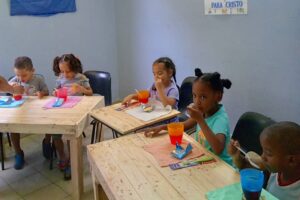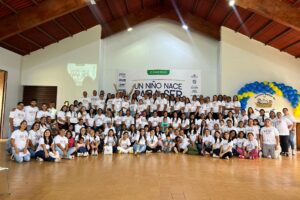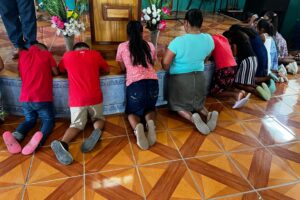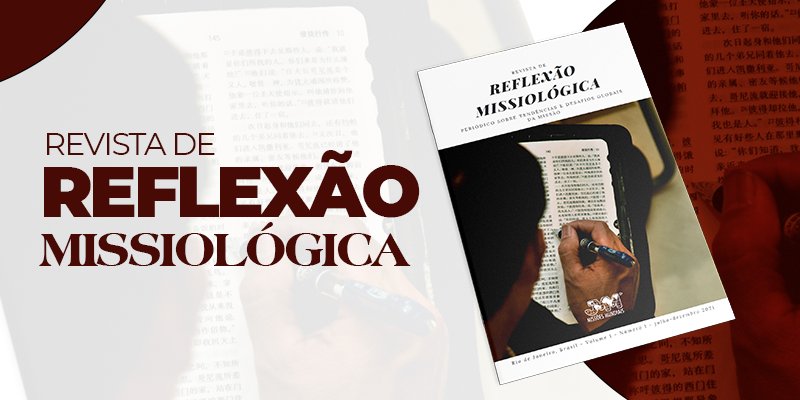PEPE advocates inclusion for all, based on the assumption that education is a universal right. In this perspective, the program provides access to early childhood education for children in vulnerable situations in 31 countries.
The current paradigm of inclusion makes it clear that it is necessary for social-educational institutions to adapt to meet the needs of each child. This implies recognizing that everyone is included, that is, the principle of educational practice applies to everyone.
Based on this understanding, PEPE has been striving to train its missionary-educators (ME’s) with inclusive education skills. Both in PEPE manuals and in the annual congress, this theme has been widely discussed. In this way we try to offer the children a better service. In Senegal, for example, PEPE already serves deaf children.
In the training, in addition to the fundamentals of concepts about inclusive education, the missionary-educators can experience the atypical situations that children experience, thus learning how to intervene appropriately in each situation.
Unfortunately, lack of access to education seems to be a normal occurrence in many contexts. However, when we hear parents grateful to recognize the opportunity their children are having with PEPE, we are encouraged to continue. We understand the difference PEPE makes in welcoming and serving all children. Those who would not have the opportunity to receive a quality education now have it at PEPE.
However, inclusion should not only happen in PEPE, but in all areas of society, assuming the effective participation of children in social processes, so that they can exercise their citizenship.
We want to be like Jesus: welcoming all children!
José Ricardo Nascimento
Continental Coordination in Africa
Translated by Juliana Martins



